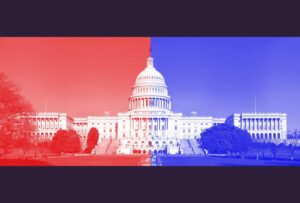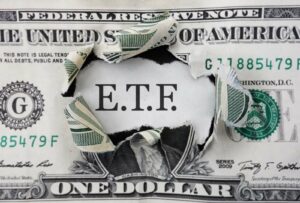We track political stocks. So we’re often asked different versions of the “Why does that matter?” question. One version makes the question political. Another ties the question to investment strategy. For me, recalling years as a rebellious teen, the question is almost spiritual. “Why does anything even matter….Mom?! Nyeh!”
Don’t worry. We’ll get there in future posts, but for now, the general form of “Why does political investment data matter?” has a simple answer: because more transparent countries make more money.
This chart, by Richard Florida, compares corruption and per capita GDP. Ten years later, its core insight remains. Less-corrupt countries have more money.

Digging further, we see that corruption is measured by Transparency International’s Corruption Perception Index. That Index is interesting because it is a survey-based index of the “perception of public-sector corruption” by business leaders and analysts. The correlation coefficient between the Index and per capita GDP is 0.81. So the relationship is highly significant. More recent estimates suggest that 1 point of corruption = 1.7% of annual GDP growth. In the U.S. GDP growth hovers around 3%, so 1.7% is a big deal.
In dollar terms, since American GDP is $63k, the income gained/lost from “1 point of corruption” approximates $1000 of income growth/lost per person, per year.
An economy that work well is one that efficiently coordinates the daily activities its participants. When we don’t trust one another, we spend more time double-checking that we’re not being cheated and less time doing whatever it is we should be doing to keep the economy going. A corollary of the “trust, but verify” adage is that verification should be the secondary activity. The mark of a failed state is a general paranoia of being ripped off.
For modern economies at the upper end of the scale, this lack of trust in the public sector is driven by a perceived misalignment between the interests of a country’s political leaders and its citizens. According to Gallup, in 2019 only 11% of the public had “quite a lot” or “a great deal” of trust in Congress. In 1986, that number was 41%.
In this light, Congress’ approval rating is more than a cosmetic issue, it is a direct obstacle to economic growth.
My personal belief is that the mechanism connecting economic growth with political corruption perceptions is some combination of broken-windows norms-signalling and a rational hiking of the social risk-premium. However, we don’t have to dissect the mechanism to develop a course of action. There are already best-practices from other countries that we can follow.
Countries like Singapore, Denmark, Iceland, and Japan require significantly more disclosure of potential conflicts of interest from their politicians. They do so under a wide range of social welfare levels, because they understand that the “perception of corruption” matters as much as any actual corruption, since it the perception that can undermine private-sector behavior.
How does that play out in America?
Consider this: we’re never been asked “Do you really think Congress might be up to something?” That answer is just assumed to be “Yes”. Being asked “Why should I care?” already implies a base expectation of self-dealing by politicians.
That’s the first reason political investments are important: we all benefit if everybody knows that somebody is paying attention to these investments. For now, that somebody is us.




